Sorry, But Loving Dave Burd and Hating Hannah Horvath Is Highly Problematic
The characters are proof that a double standard still exists with ambition on television.
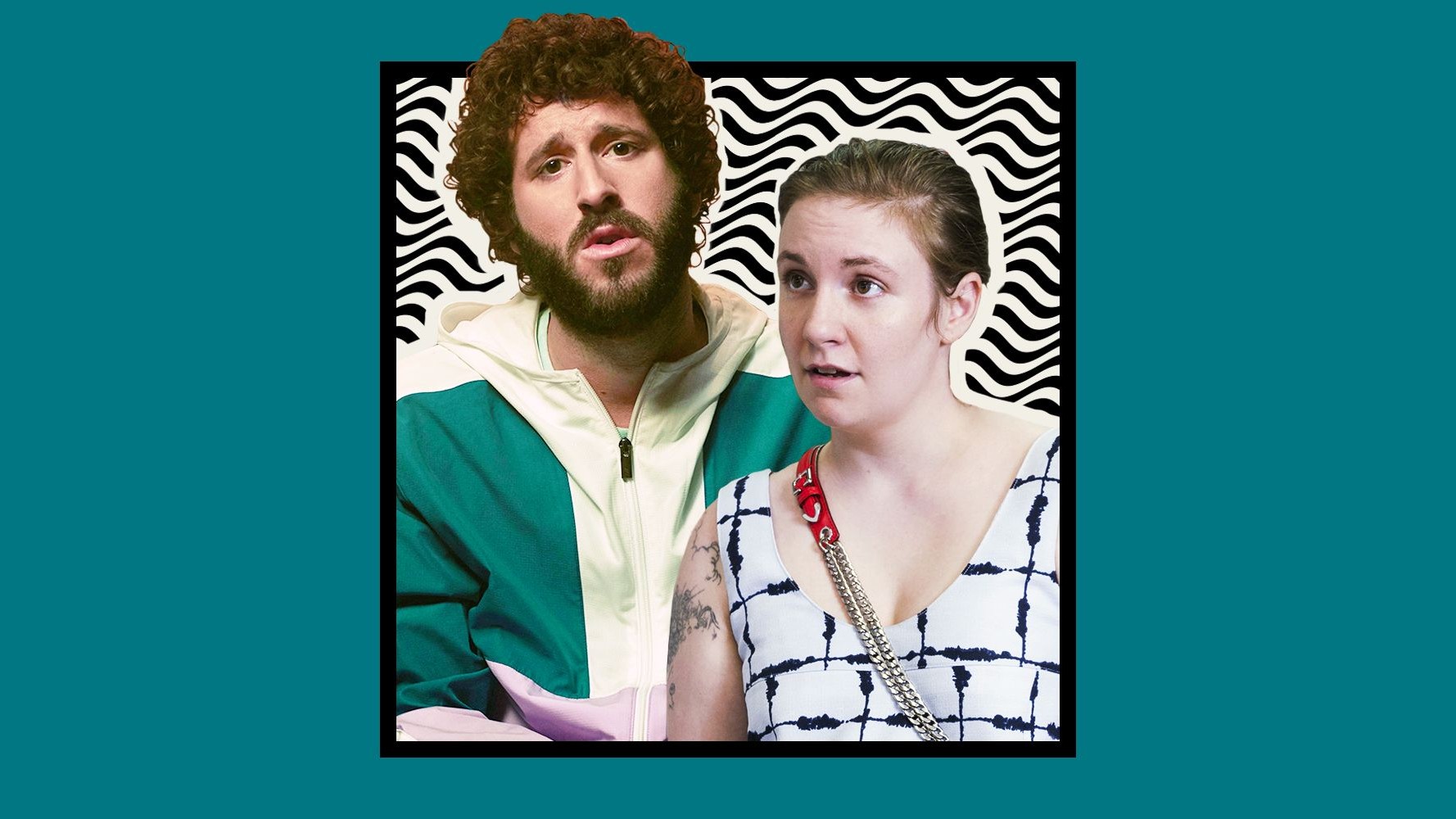

Five minutes into FX’s Dave, Dave Burd, looking hopelessly white and Jewish in a mock neck sweater, declares he’s going to be “the biggest name in hip-hop.” There’s no evidence to back his statement up. He’s an unknown, sitting in the lobby of a recording studio trying to schmooze his way to fame.
In 2012, another TV character made a similar statement: Hannah Horvath blew up the internet when, in the pilot episode of a little HBO show called Girls, she handed her parents a draft of her memoir and said, “I don’t want to freak you out, but I think that I may be the voice of my generation.”
The parallels between Dave Burd, the character (played by real-life rapper/comedian Lil Dicky whose given name is Dave Burd), and Hannah Horvath (Lena Dunham) don’t stop at their oversized egos. Both embody the most extreme criticisms leveled at millennials: entitled, delusional, neurotic narcissists who are happy to take their parent’s money instead of working for their own and are shocked when success doesn’t fall into their laps. Dave and Hannah’s most striking similarity is their grotesque self-absorption. When Dave is asked to rap at a young fan’s funeral, he turns the invitation into an obsession over why he’s compared to other white rappers like Macklemore. When Hannah’s editor dies unexpectedly in season three, she’s more concerned about finding a new publisher for her ebook than grieving his death.
But there’s one big difference: We love Dave. Sure, he’s appropriating Black music without any meaningful acknowledgment; he’s self-obsessed to the point of cruelty; he personifies “woke” male misogyny and entitlement; he doesn’t seem to have a job; he’s awful to his supportive girlfriend, including risking her job by tweeting false sexual statements about her. Not to mention, his music is, at best, forgettable, and at worst, tone-deaf and offensive (consider his carefully crafted rhymes such as “I go on dates and never have to worry ‘bout getting raped”). When he does find success, he shows no appreciation for it. Despite all of that, I still found myself rooting for him. And I’m not alone. Dave has become the most watched comedy show in FX’s history, with its lead referred to by reviewers as vulnerable, endearing, refreshingly goofy, introspective, smart, and sensitive. Hannah Horvath, on the other hand, is considered one of the most hated characters of all time. A 2015 article in The Atlantic even pitted her against Hannibal Lector for the title of “most terrible person on television.”
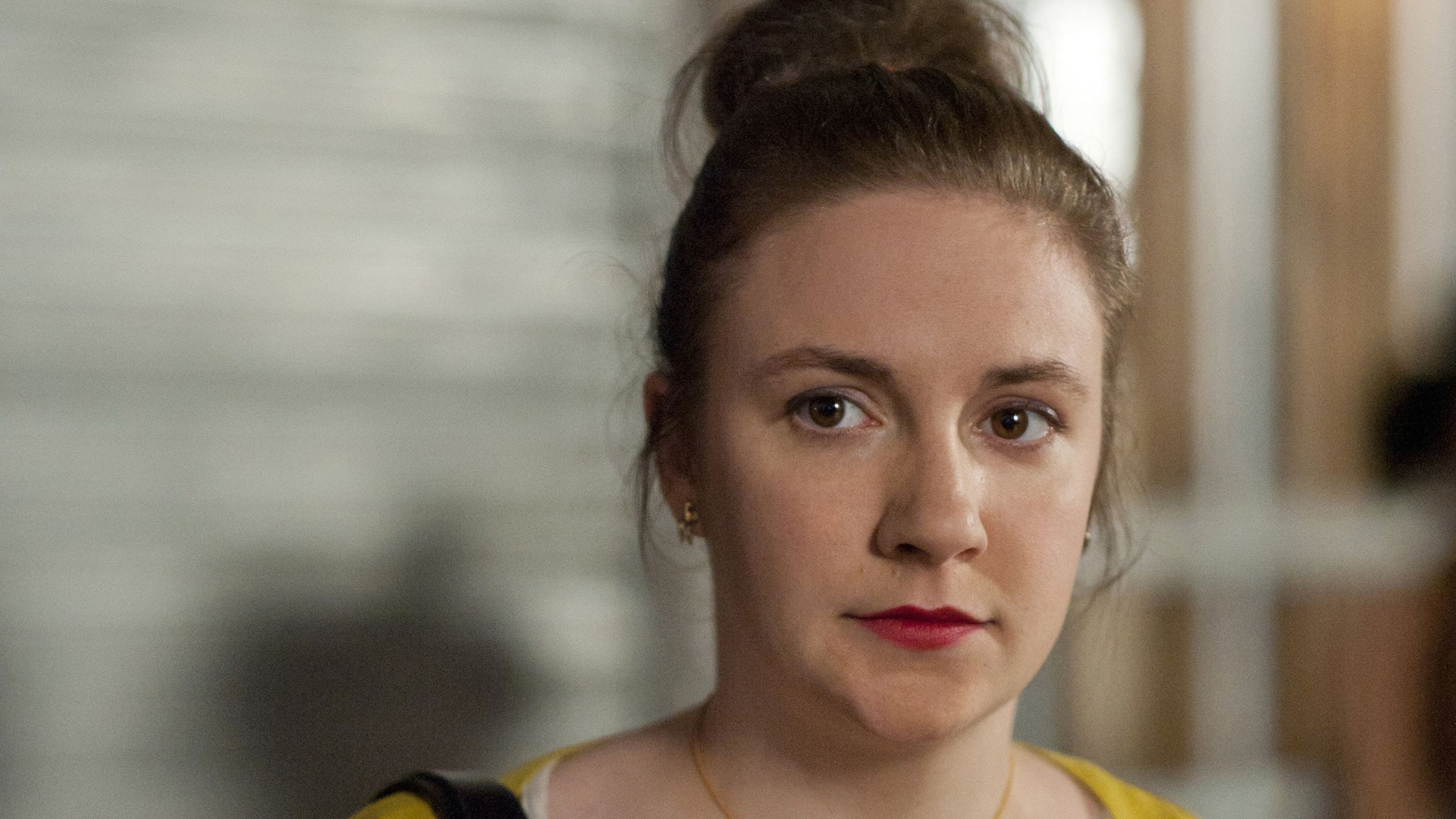
One of the most troubling examples of the double standard applied to Hannah and Dave is the response to their bodies. Hannah and Dave get naked a lot in their respective shows, and neither have a body that would be described as conventionally attractive (at least, according to the euro-centric body dysmorphic standards society currently glorifies). Hannah is described as being “bulgy” with “giant thighs, a sloppy backside, and small breasts.” But not a single reviewer mentions Dave’s body, though we see him nude as much as (if not more than) we see Hannah. Regarding a scene where he graphically penetrates a sex doll named Fuck Me Silly (which he hides from his girlfriend until he is forced to confess), Naomi Fry writes in the New Yorker that it’s a skillful “exploration of shame.” Yet Hannah, who shares with her love interest, Adam, that she got tattoos as a way of handling her emotions around weight gain, was once referred to by Howard Stern as “a little fat girl who kind of looks like Jonah Hill.”
Both characters may feel entitled to success, but only Dave is handed it. Everything he does seems to go viral, and without much effort. He befriends Justin Bieber; catches the interest of well-known music producer Scooter Braun; gets an interview on the radio show, The Breakfast Club; and stumbles into a multi-six-figure recording deal. Just in the first season! In contrast, Hannah finds herself struggling to gain footing in a “downright savage portrait” of the publishing industry. The first season of Girls has Hannah cut off from financial support by her parents, fired from her unpaid internship when she asks to be compensated, and sexually harassed while working as a secretary. She ultimately must get a job at a coffee shop to cover the bills. Tellingly, in an interview with the New York Times, the real-life Dave Burd earnestly said, “In my heart I feel I’m one of the best rappers alive.” Meanwhile, Dunham has repeatedly had to emphasize that the “voice of my generation” comment was a joke, that Hannah was high on opium when she said it, and that although female writers are often conflated with their female characters, she and Hannah are not the same person. In fact, it could be argued that Dunham’s entire career has been hijacked by our hatred of Horvath. Instead of getting credit for her talent as a director, actor, and writer, her outspoken activism, and her efforts to change the conversation about body image and mental health, Dunham is still criticized as being a navel-gazer, a “varsity-league exhibitionist,” and an untalented byproduct of white privilege. (Um, Dave, anyone?!)
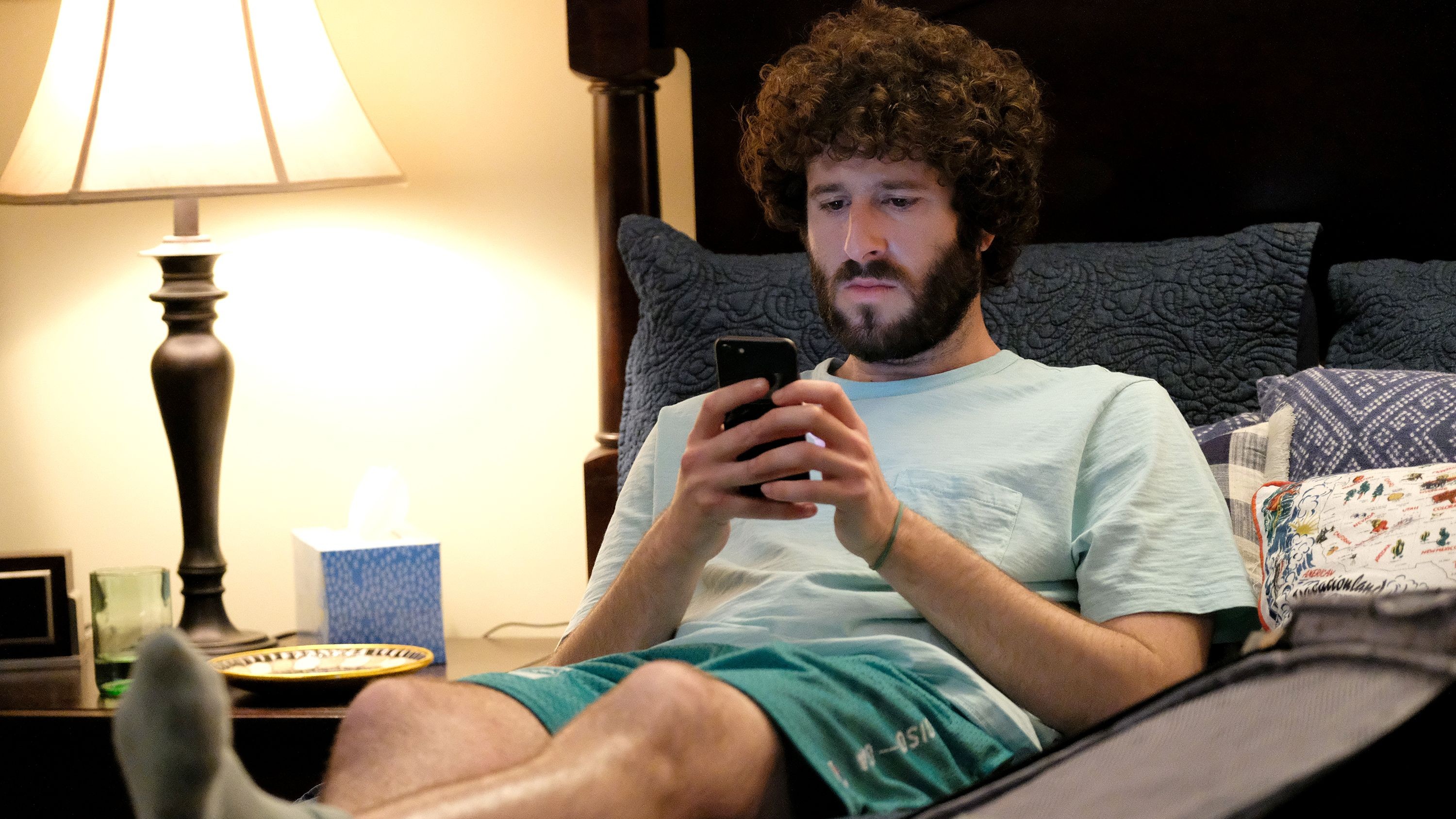
In this way, Dave and Hannah serve as reminders of a terrible but undeniable fact: Unabashedly ambitious women (especially ones who aren’t conventionally attractive or thin) will be laughed at, shot down, embarrassed, underpaid, and dismissed as delusional. Similarly ambitious men will be applauded, given advice, introduced to connections, given second chances, paid enormously, and seen as big dreamers.
Get exclusive access to fashion and beauty trends, hot-off-the-press celebrity news, and more.
If you look to other female TV leads, you’ll see that they, too, pay the price for their ambition: Alicia from The Good Wife; Shiri from UnREAL; Carrie from Homeland; Debbie from Shameless; Piper from Orange Is the New Black; Annalise from How to Get Away With Murder; Rebecca from Crazy Ex-Girlfriend. As Angelica Jade Bastian points out in the Outline, these female leads are only allowed to show ambition if there is mental illness or trauma to justify it, which becomes “a cautionary tale warning women that going full tilt toward your own desires will only lead to self-destruction or soul-crushing loneliness.”
Because the problem, after all, is not with Hannah Horvath or Dave Burd. They are simply operating as mirrors, showing viewers everything we subconsciously believe about women’s ambition and men’s entitlement. Even as we declare ourselves “against the patriarchy.” Even as we demand equal pay. Even as we stitch our “The Future is Female” needlepoint, we still cringe to hear a woman talk about how she’s hot shit. We secretly believe a woman should be likable in order to succeed. But when a male says he’s “destined for stardom,” we don’t blink. In fact, we clap along.
They are simply operating as mirrors, showing viewers everything we subconsciously believe about women’s ambition and men’s entitlement.
I recently rewatched the first season of Girls. And I realized that I had remembered it wrong. She does say that she thinks she might be the voice of her generation, but then she pauses. She stumbles a little, then adds, “or at least, a voice of a generation.” Even Hannah understands how repulsive unapologetic female ambition is, and at the last minute, tries to backtrack.
Related Stories
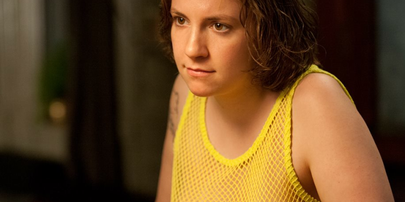
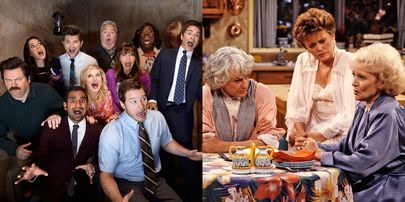
The Greatest Comedy Series of All Time
Emma Pattee is a writer from Portland, Oregon. Her work has appeared in The New York Times, The Washington Post, The Cut, Glamour, Elle, and more.
